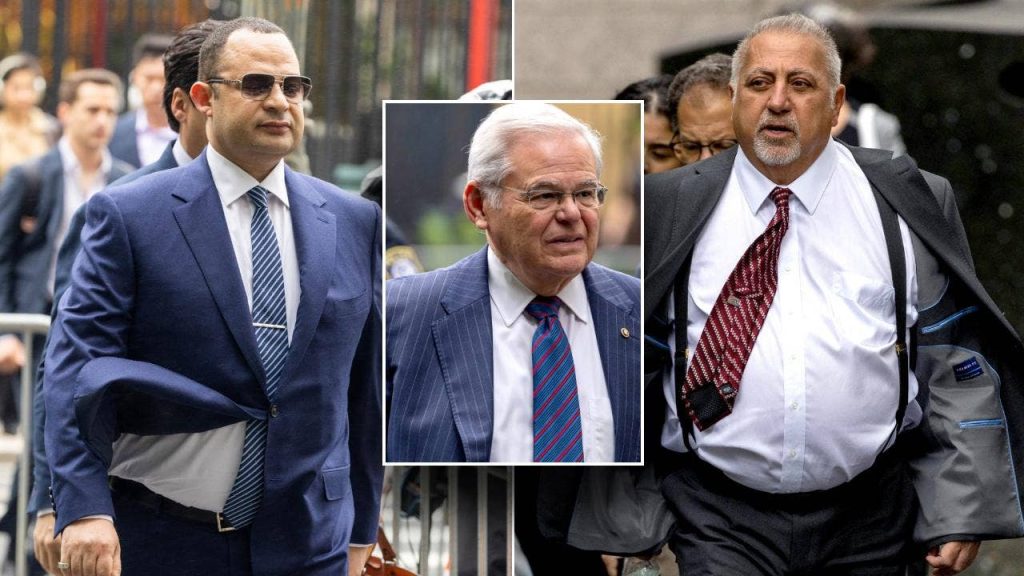In the corruption prosecution of Senator Bob Menendez, his co-defendants, Wael Hana and Fred Daibes, are arguing that the charges against them are based on guilt by association. Hana’s attorney, Lawrence Lustberg, emphasized that the case is about criminalizing friendships, gift-giving, and business successes after failure. He urged the jury to consider how much of the case is guilt by association and to approach the evidence with an open mind. The defense portrayed Hana’s relationship with Menendez’s wife, Nadine, as a supportive and mutually beneficial one, refuting allegations of bribery and emphasizing cultural norms regarding gift-giving in the Middle East.
Both defense attorneys for Hana and Daibes emphasized the importance of long-standing friendships and legitimate investments over alleged corruption. Lustberg refuted the notion of a quid pro quo, arguing that Hana secured contracts based on his professional credentials rather than any undue influence from Menendez. De Castro dismissed the exchange of gold bars and cash as innocent gestures, portraying Daibes as a philanthropic figure who invests in loved ones. All three alleged conspirators have pleaded not guilty, with co-defendant Jose Uribe, who has pleaded guilty, agreeing to testify against the other defendants.
The trial for Menendez’s wife, Nadine, who is also charged, has been delayed until at least July due to health reasons as she battles Stage 3 breast cancer. The case may extend for 6-8 weeks. This is the second time in a decade that Menendez has been accused in a federal corruption case. Menendez was charged with obstruction of justice in a superseding indictment unsealed in March relating to an alleged bribery scheme involving the governments of Egypt and Qatar. The 18-page indictment is part of Menendez’s existing charges against him and his co-defendants for allegedly acting as a foreign agent and accepting bribes to benefit the Egyptian government through his power as a senator.
The defense team for Hana and Daibes is focused on refuting the allegations of bribery and corruption, emphasizing the innocence of their actions and relationships with Menendez and his wife. The attorneys argue that the exchange of gifts and support between the defendants and the Menendez family was based on genuine friendship and cultural norms rather than corruption. They stress the importance of impartially considering the evidence presented in the case and approaching the trial with an open mind. The trial is ongoing, with the potential for testimony from co-defendants and further developments in the case.
In conclusion, the defense maintains that the charges against Hana and Daibes are based on guilt by association and cultural misunderstandings regarding gift-giving practices. They argue that the defendants’ relationships with the Menendez family were genuine and non-corrupt, highlighting instances where financial assistance was declined or repaid. The trial is expected to continue for several weeks, with additional testimony from co-defendants and further scrutiny of the evidence presented by the prosecution. The defense team is determined to prove the innocence of their clients and refute the allegations of bribery and corruption in the case.


